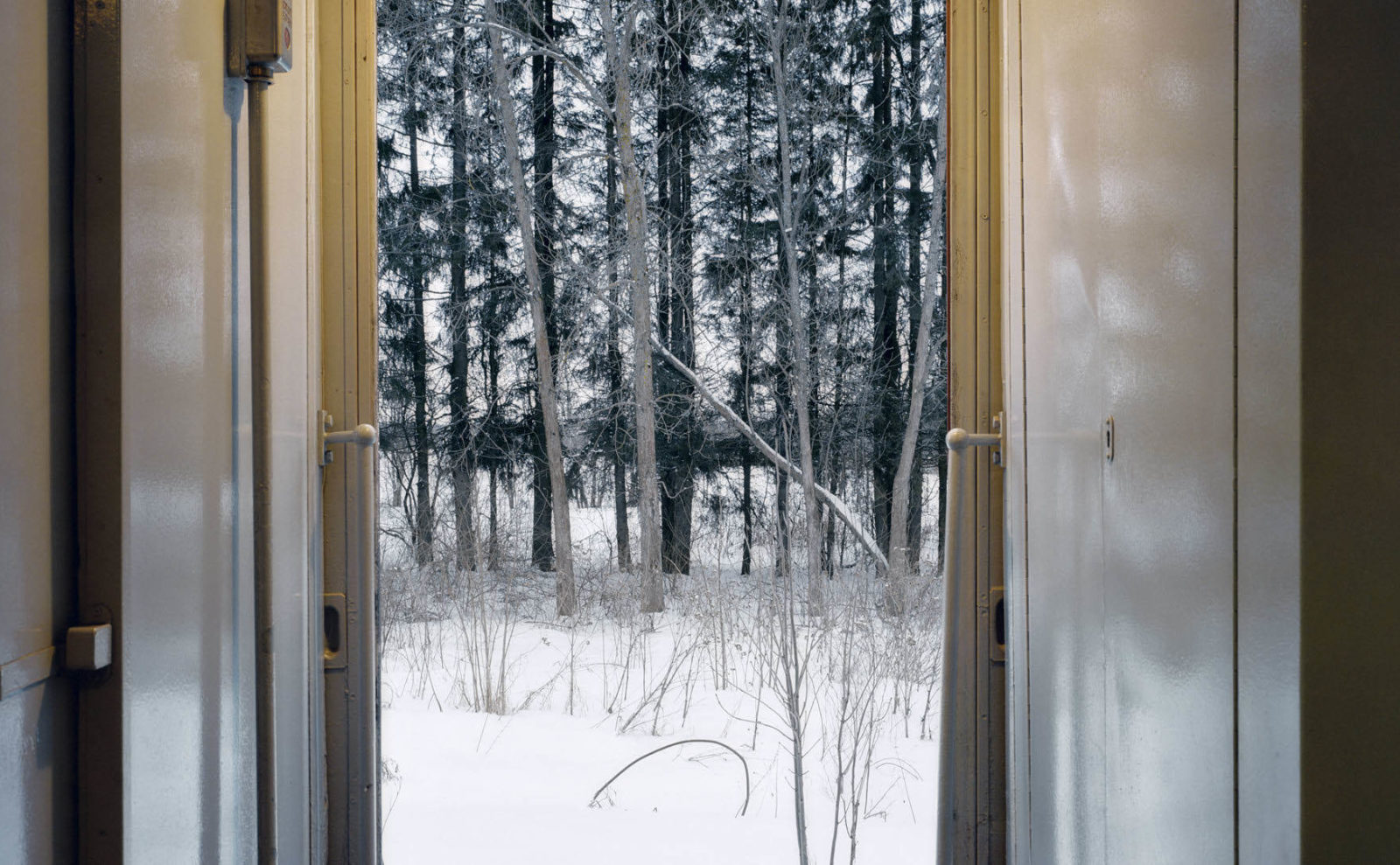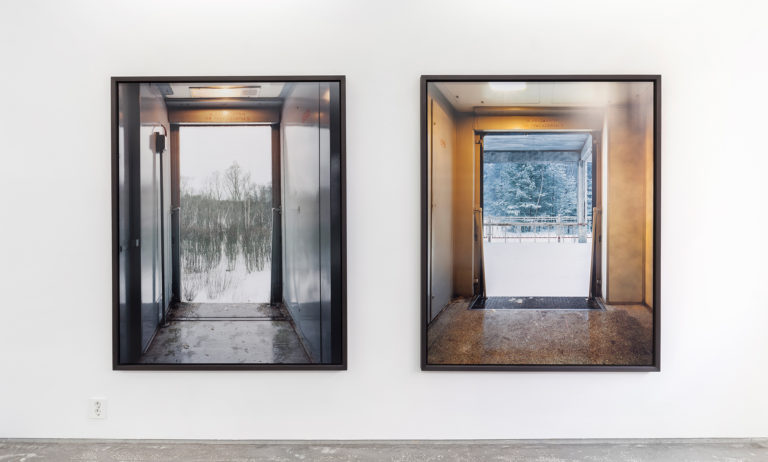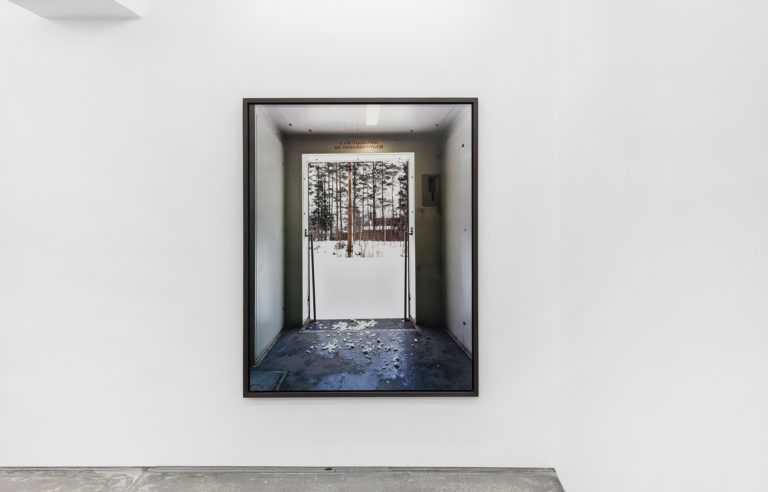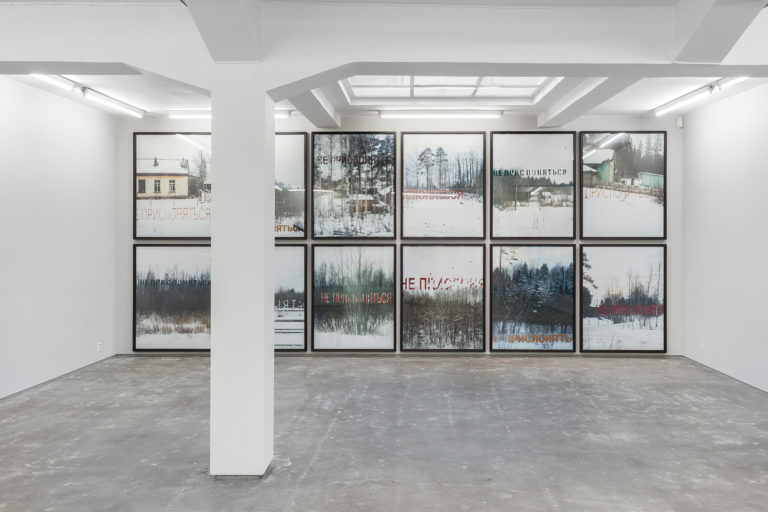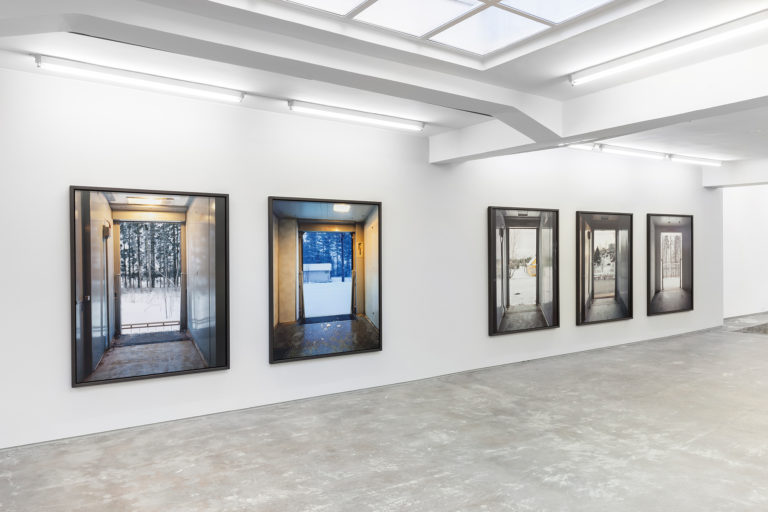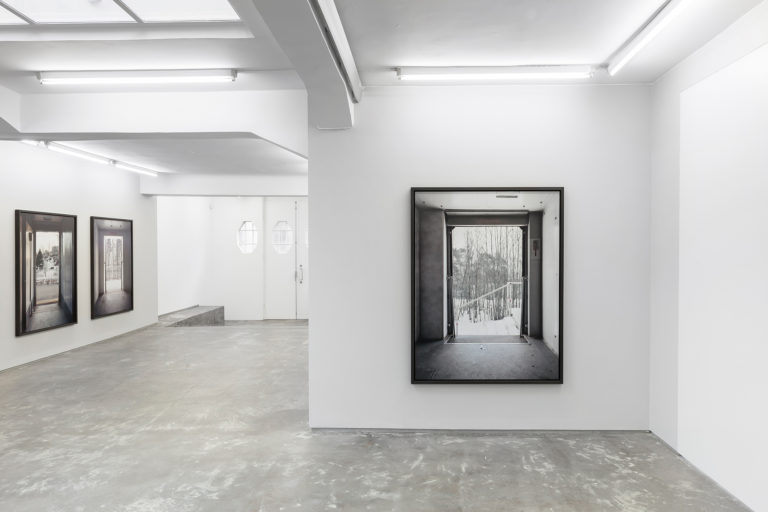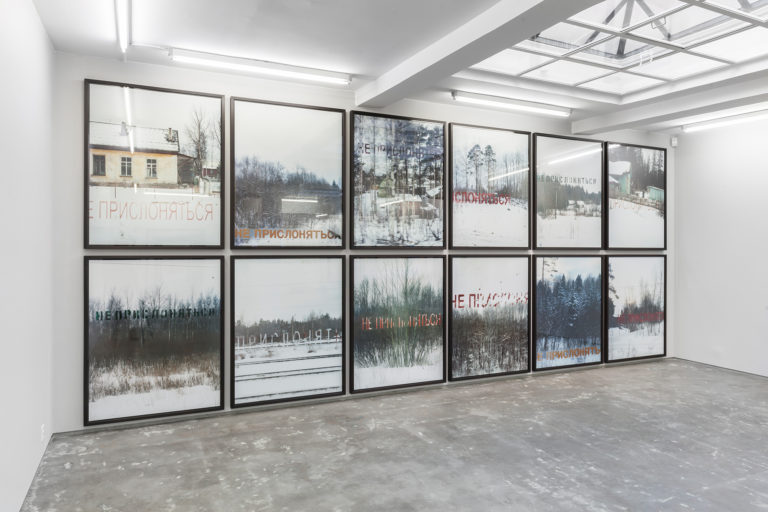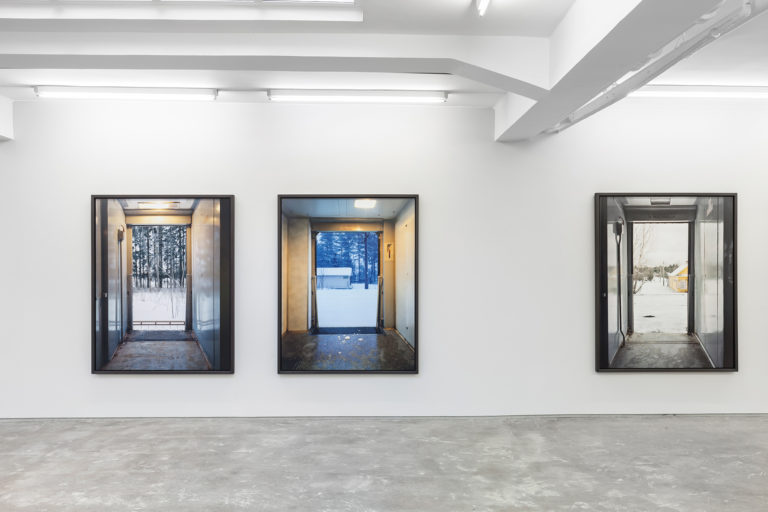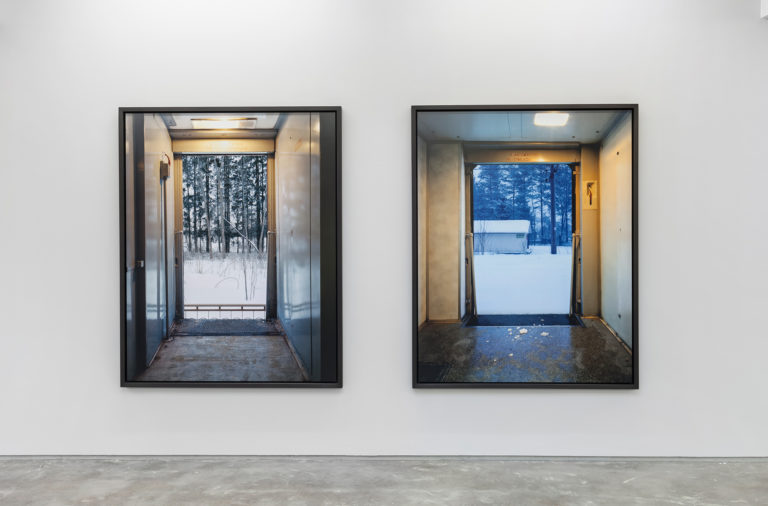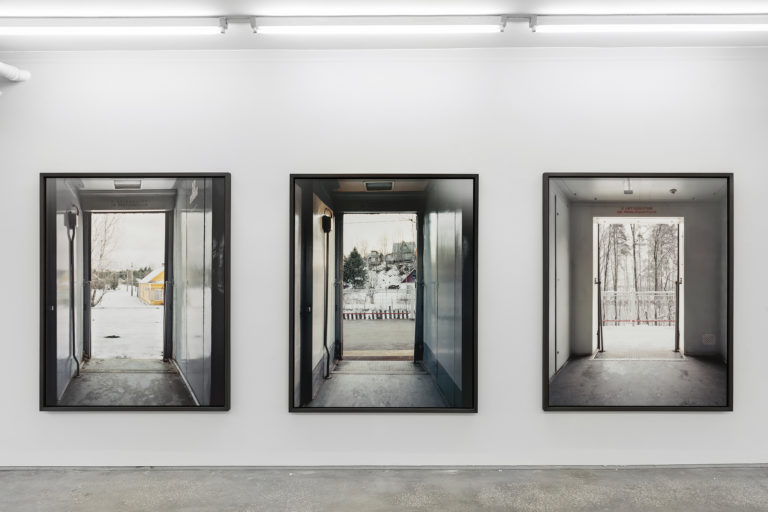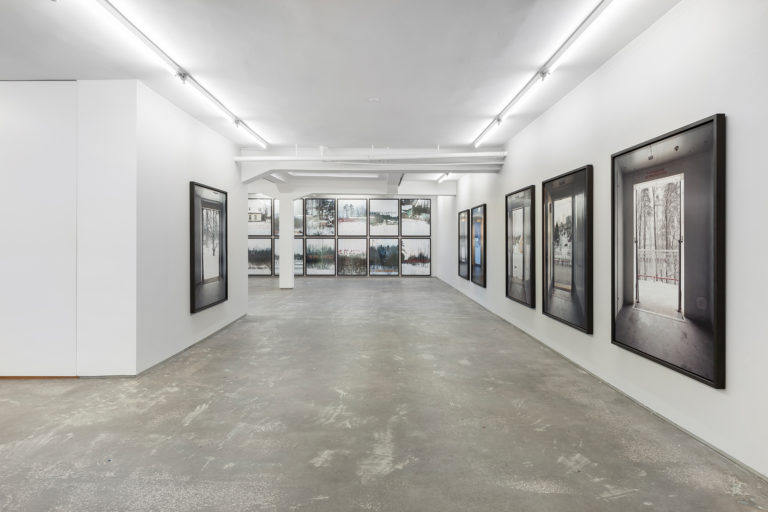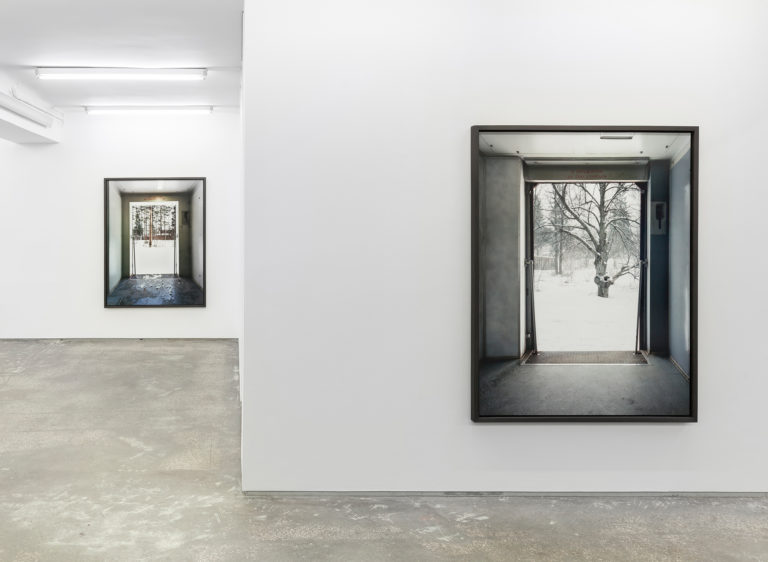OSL contemporary is proud to present its third exhibition by the artist Marie Bovo. The exhibition comprises 20 new photographs from the artist’s latest series Cтансы (Stances), shot while she was travelling by train through Russia for three weeks in the beginning of 2017. The series was first shown at The Rencontres d’Arles, where the photographs were exhibited in l’Eglise des Trinitaires. A selection of the larger body of work will be on view at OSL contemporary from 16 November to 22 December 2017.
For 15 years, Marie Bovo has been photographing views of natural and urban landscapes. She records a specific motif at intervals, making time a central subject matter. In several of Bovo’s series, such as the urban still-life scenery in Algers (2013), the intimate backyards in Cour Intérieure (2009) and the terraced roof tops of Cairo in Bab-El-Louk (2007), time is a protagonist that invokes a sense of infinite presence and sameness. In Stances, time seems to have been standing still in the ex-Soviet region: few distinguishing marks reveal where we are, or what year we are in; and few things seem to have changed: the apathy in the population, the landscape, the politics.
Bovo began Stances in 2016, working in different trains, travelling long distances across Eastern Europe and Russia. At each stop, before seeing the landscape, the architecture, or the light that the doors would open upon, Bovo set up her camera in the narrow entryway of the train car. Before the doors closed, she would photograph the landscape beyond. The resulting images are the junction between the train and what is beyond its doors, giving the viewer a strong situational experience, recreating the sensation of Bovo’s body in space. Caught inside the architectural framework of the train car, the viewer looks out of the train’s windows while shifting across the vast Russian landscape. It is the landscape, rather than the train, that seems to be moving before our eyes.
Inspired by the cultural representation of the region in its own literature, Bovo’s photographs evoke a solitude and poetic universe that reflect her passion for literature in general, and a hesitation to accept the Western point of view on Russia that is presented in the international media. Her choice to travel by train, a means of transportation often used by locals, also reflects her culture-specific starting point. Bovo excludes any anecdotes and overt aesthetic effects, focusing instead on the essential elements of the landscape beyond. She lets the train frame the images for her, capturing the eternity that is just outside the train window – trees, plains and houses – and in the extension of that, what is at the heart of the past and present of the Eastern European region.
The time of year is important: every scenery is covered in snow. The snow changes the landscape’s atmosphere, covering it with a veil, erasing the horizon and removing most identifying marks. Roads and paths disappear, transforming the environment to a vast, tranquil mass. The usual traces of people in Bovo’s photographs have disappeared as the snow covers the echoes of human intervention, creating an abstract and poetic air. Remaining truthful to the landscape she sees, Bovo shows a Europe marked by the communist and post-communist era, neither taking part in the same history nor the same reality as the rest of the Western world.
Marie Bovo was born in 1967 in Alicante, Spain, and lives and works in Marseille, France. Her work has been the focus of several exhibitions in France and internationally, such as Les Recontres de la photographie, Arles (2017); La Chambre, Strasbourg (2016); Fondation Fernet-Branca, Saint-Louis (2016); UCR/California Museum of Photography, Riverside, CA (2016); FRAC PACA, Marseille (2015); Institut Français, Madrid (2014); KaviarFactory, Henningsvær (2013); Maison Européenne de la Photographie, Paris (2010); Centre de Création Contemporaine, Tours (2009); Maison de la Photographie, Toulon (2009); Luìs Serpa Projectos, Lisbon (2008); and Ateliers de la Ville de Marseille, Musée de Marseille (2007). Her work was presented at the Palazzo Zenobio as part of the 54th Venice Biennale in 2011. In 2016, Bovo was nominated for New York’s ICP Infinity Awards. Bovo’s work is represented in central private and public collections, including those of Fonds national d’art contemporain (FNAC), Paris; Maison Européenne de la photographie, Paris; Le Grand Hornu, Boussu, Belgium; Les Collections de Saint-Cyprien, Saint-Cyprien; California Museum of Photography, Riverside, CA; and FRAC, Marseille.
Exhibitions
